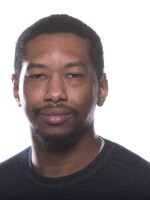Last summer, Studio Two Three’s do-it-yourself ethos echoed throughout the protests in Richmond. From producing thousands of masks for essential workers to collaborating with local artists, the nonprofit served the Richmond community throughout the pandemic.
COVID-19 caused the studio to shut its doors for just over three weeks, and Executive Director Ashely Hawkins says the pandemic didn’t deter the staff from its mission.
The first step in reopening was converting the organization’s event space, where a team of over 100 volunteers created 10,000 masks for essential workers.
“So that was our first kind of reopening in a small and big way that made us feel like we were being proactive and engaging with our community, being able to actually make something tangible in a time that was really terrifying and overwhelming.” Hawkins said.
The next step was to figure out how to get some 125 artists back into the building safely. Development Director Kate Fowler says Studio Two Three established a calendar sign up to manage the number of people in the space at any one time. As coronavirus cases began to fall, Fowler says, they were able to more fully open back up.
“Knock on wood, we haven't had anything happen and we have a big airy space and people are incredibly respectful of each other,” Fowler said. “We've been able to stay open, stay intact and for people...our artists in the studio, outside of the studio itself, have been making really powerful and meaningful work throughout the pandemic, too.”
When people took to the streets in Richmond to protest the deaths of George Floyd, Breonna Taylor and others, Fowler says Studio Two Three’s grassroots print shop found an opportunity to fulfill its mission: “to empower artists to make art and make change.”
Efforts began with printing small posters for business owners to hang outside. Some of their messages read, “This is a Black owned business,” “This is a community organization" and “This is a small local business.”
“We went out and helped distribute those to anybody who wanted them and hung them up along Broad Street,” Fowler said. “And it was our kind of first moment of being like, ‘wow, we can in this time, make all of these things that will hopefully be a positive contribution to our community with the resources that we have as a print shop,’” Fowler said.
They also filled small newspaper boxes with these posters. They also printed shirts to support local organizations like Richmond Community Bail Fund.
“It's something that we could really do to both amplify these incredibly powerful images and kind of create this commemoration of this moment in our city, and also directly support artists and organizations,” Hawkins said.
Fowler says they were always trying to figure out ways to push activists’ messages forward: from community print days at Marcus David Peters Circle to artist residencies at the Institute for Contemporary Art at Virginia Commonwealth University. The network of artists that Studio Two Three built is what Hawkins says led to their success.
“Having 125 folks in the studio, who are bringing other artists in, in a really natural way, that are looking for the resources that we have, and looking to be part of this community, I think is where a lot of the magical, really profound, powerful, meaningful work comes from,” added Hawkins.
This also led to projects like “History Is Illuminating,” a group comprised of historians dedicated to highlighting historically Black figures and recontextualizing Monument Avenue.
Fowler says this all came together kind of organically.
“What happened with the protests and how monumental and large they were in the city is because there's just decades of activism and people doing that work,” Fowler said. “And it was cool for us to be able to find our place within that and say ‘here's what we really distinctly have to offer and here's how we can show up.’”
In the end, Studio Two Three’s mobile print truck produced hundreds of posters, t-shirts and led what Fowler says was one of her proudest moments of last year: witnessing one of the Confederate monuments being removed amid a sea of hand-printed shirts worn by people in the crowd.
“I think what we've realized is that, you know, all of these are important pieces in a larger picture that we at the studio aren't skilled at, like deep community organizing, that we aren't going to have the tools necessary to do that,” Fowler said. “But what we can do is partner strategically and figure out who it is in the city, who is doing that work really intentionally. And then we can lend our resources.”











